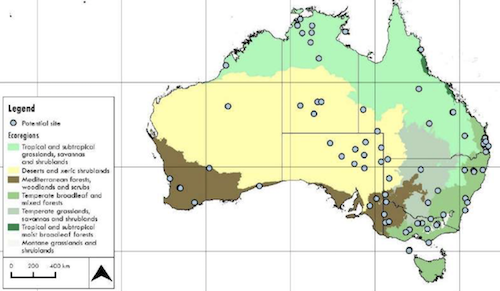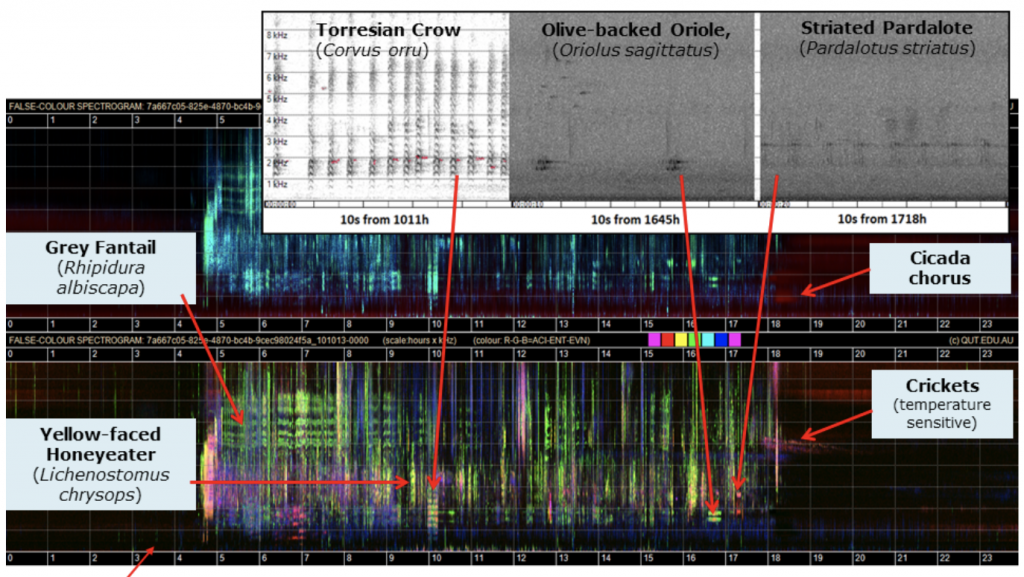Australia launches world’s first continent-spannning acoustic observatory
Bioacoustics, Science Add commentsThe burgeoning field of soundscape ecology (also dubbed ecoacoustics) is poised to take a remarkable leap forward during the just-beginning Australian summer of 2018. By mid-year, researchers plan to install 400 microphones in 100 locations spanning the continent’s seven diverse ecoregions.

At each location in this Australian Acoustic Observatory (A20), two acoustic recorders will be placed in relatively wet habitats for that biome (wetland, river, creek, drainage, depression) and two in relatively dry areas. Every six months or so, researchers will swap out the SD cards at each location and upload all the files to the project website, where everyone can engage with this extraordinary dataset.
David Watson, one of the Chief Investigators, noted in an introductory article:
One of the strengths of this project is our ability to use sound to picture time. We can prepare fascinating visualisations that contain months’ worth of data in a single image.
Some of the effects we’re measuring, such as the impact of cane toads and other invasive species, have very obvious acoustic signatures. They are dramatic to hear, but even more striking to see in a sonograph (essentially a graph of sound).
We’ve pioneered the use of false-colour spectrograms to visualise long duration recordings. These make clear the flattening effect of invasive species, or the long-term subtle shifts caused by climate change.
You absolutely want to check out those two links he provides! The first is to a short article containing an interactive 24-hr spectrogram which plays several minutes from each of three different times of day; the second is a thorough project description that was shared at conferences when they were in the pilot phase last year, and includes a deeper look at their innovative approach to spectrograms and the types of information they expect to glean in various habitats. It all promises to be a fascinating and exciting step forward for soundscape ecology.

